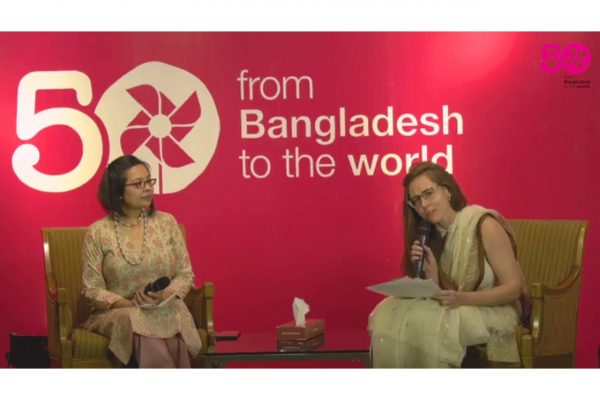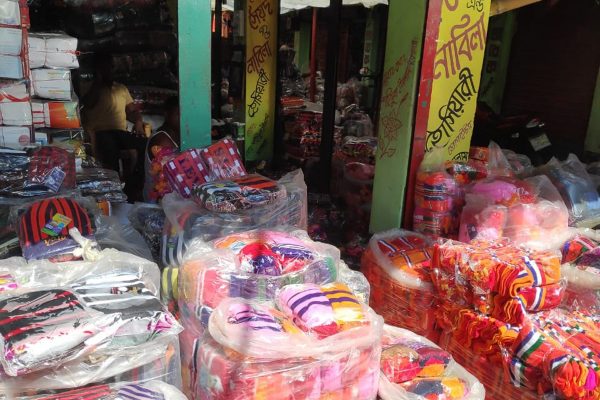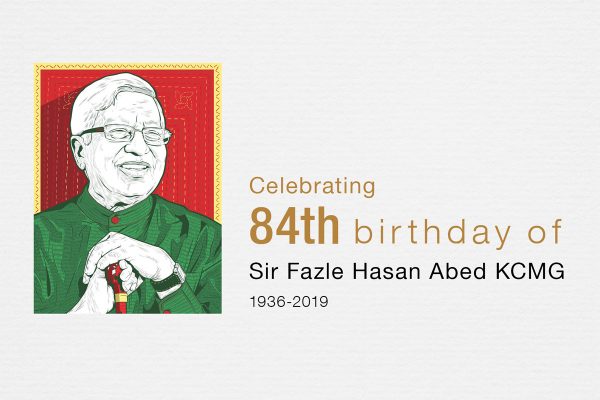Empowering Rural Women Through the International Fashion Industry
February 24, 2012
Reading Time: 2 minutes
On Thursday, February 24, Richa Agarwal, BRAC USA’s project manager for Aarong, spoke on a panel at the Fashion Institute of Technology’s guest lecture series, Creating Sustainable Futures: Women’s Empowerment through the International Fashion Industry.

On Thursday, February 24, Richa Agarwal, BRAC USA’s project manager for Aarong, spoke on a panel at the Fashion Institute of Technology’s guest lecture series, Creating Sustainable Futures: Women’s Empowerment through the International Fashion Industry. Speaking about BRAC’s largest social enterprise – Aarong, Richa was joined by Mary Ellen Iskenderian, President and CEO of Women’s World Banking, Craig Leavitt, CEO of Kate Spade New York, Deborah Lloyd, President and Chief Creative Officer at Kate Space New York, and Benjamin Stone, President and CEO of Indego Africa. The panel was moderated by Chrissie Lam, Senior Concept Designer at American Eagle Outfitters and Founder of The Supply Change, an organization working to connect fashion brands with social enterprises in developing markets.Richa began her presentation by explaining Aarong’s history, expanding from a one shop operation in 1978 into the largest retail fashion chain in Bangladesh, employing 65,000 rural artisans throughout the country. To demonstrate the Aarong model of sustainability, and how it fits into the greater BRAC system, she told the story of Shondhya Rani, a woman living in a rural village in Bangladesh. Her story is representative of the millions of women across the villages of Bangladesh.Shondhya is a married woman with two children. Neither of her children went to school because she was unable to afford their school fees. She often faced physical and verbal abuse at home at the hands of her husband. Five years ago, Shondhya attended a BRAC community meeting in her village with a friend who was a BRAC microfinance client. At the meeting, Shondhya learned about employment opportunities with the Ayesha Abed Foundation, the production arm of Aarong, and about the multitude of other services provided by BRAC. The Ayesha Abed Foundation operates 653 rural production centers, enabling women to earn a living while remaining in the village rather than having to migrate to urban areas for employment. After receiving a microloan and skills training, Shondhya purchased her own sewing machine and now works as a supplier for Aarong while her children attend BRAC schools free of cost.With over 30,000 independent cooperative groups and traditional family-based artisans selling their crafts through Aarong, Shondhya’s story is just one of many. Over the course of its 33 year existence, Aarong has revived the interest in traditional handicrafts and interpreted them to suit the tastes of modern consumers. Following Aarong’s success, many competitive brands have emerged in this space ultimately resulting in employment opportunities for rural artisans all over Bangladesh. At the end of Richa’s presentation, she urged the students of FIT to keep women like Shondhya in mind when they begin their careers in the international fashion industry, utilizing fashion’s allure to create sustainable livelihoods for women in the developing world.





